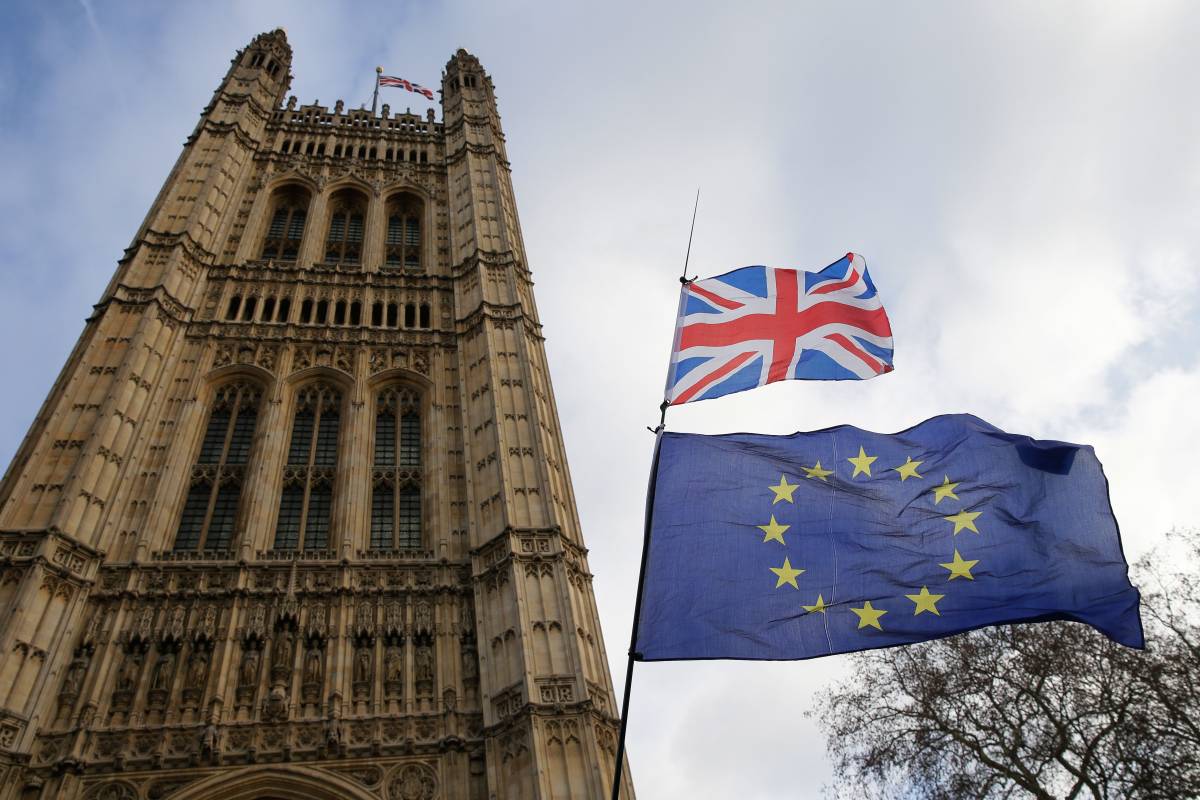The European Union is on the stand that any unilateral change could breach international law and it could respond by launching legal actions and impose tariffs, reports Asian Lite Newsdesk
The United Kingdom will propose legislation to unilaterally rip up post Brexit trading rules for Northern Ireland, in a move that may trigger a trade war with the European Union (EU).
A UK-EU rift has recently deepened over the protocol, under which Northern Ireland is part of the UK’s customs territory but is subject to the EU’s customs code, value-added tax rules and single market rules for goods
When UK left the EU, Prime Minister Boris Johnson agreed a deal that effectively kept Northern Ireland in the EU single market and customs union to preserve the open border with Ireland specified in the Good Friday peace agreement.
Despite the two sides’ agreement in October 2019, the protocol has caused divisions over how some of the rules should be implemented, particularly for goods moving from Great Britain to Northern Ireland.
It imposes customs checks between the province and the rest of the UK, which pro-British communities in Northern Ireland say erodes their place within the UK.
Johnson has said the protocol’s implementation has damaged trade within the UK and has threatened political stability in Northern Ireland.
The legislation will be presented to parliament by British Foreign Secretary Liz Truss.
Brussels believes any unilateral change could breach international law. It could respond by launching legal action and by imposing countermeasures, such as tariffs.
UK’s Northern Ireland Secretary Brandon Lewis insisted on Sunday that the legislation complied with the law. But he declined to say how the protocol would be changed, but said the government would set out the legal basis for the bill.
It is expected to propose a “green channel” for goods moving from Britain to Northern Ireland, as well as scrapping rules that prevent the province from benefiting from tax assistance and ending the role of the European Court of Justice as sole arbiter, according to reports.
While British leaders have argued the protocol needs to be amended, the EU has said a renegotiation is off the table.
UK Foreign Secretary Liz Truss had earlier told Parliament that the priority was to uphold the Belfast Good Friday Agreement “in all its dimensions”.
Signed in April 1998 following three decades of conflict, the landmark Belfast Agreement established a power-sharing system of government, including an Executive and Assembly. It underpins Northern Ireland’s peace, its constitutional settlement and its institutions.
However, the agreement “is under strain,” Truss said, noting that the Northern Ireland Executive has not been fully functioning since early February because the protocol “does not have the support necessary in one part of the community in Northern Ireland”.
While the protocol has not yet been implemented in full due to the operation of grace periods and easements, she added, EU customs procedures for moving goods within the UK have already meant companies are facing significant costs and paperwork, among other practical problems.
Recently, the need to solve the dispute over the protocol has been made even more urgent after Sinn Fein, the Irish Nationalist Party, was in early May declared winner in elections for the devolved Assembly in Northern Ireland.
Coming second in the elections, the pro-Brexit Democratic Unionist Party has said it would not sit in the Assembly, citing its opposition to the protocol, which creates a trade border in the Irish Sea.
The UK Foreign Secretary said the UK has proposed a “comprehensive and reasonable solution” to deliver on the objectives of the protocol, including a trusted trader scheme to provide the EU with real-time commercial data, giving the bloc confidence that goods intended for Northern Ireland are not entering the EU single market.
In response, European Commission Vice President Maros Sefcovic said that the UK’s plan to table legislation “raises significant concerns”.
He noted in a statement that the protocol is an international agreement signed by the EU and the UK and that unilateral actions contradicting an international agreement are “not acceptable”.
Should the UK decide to move ahead with a bill disapplying constitutive elements of the protocol as announced by London, Sefcovic added “the EU will need to respond with all measures at its disposal”.
ALSO READ-Macron coalition outstrips rival left by slim margin

Leave a Reply